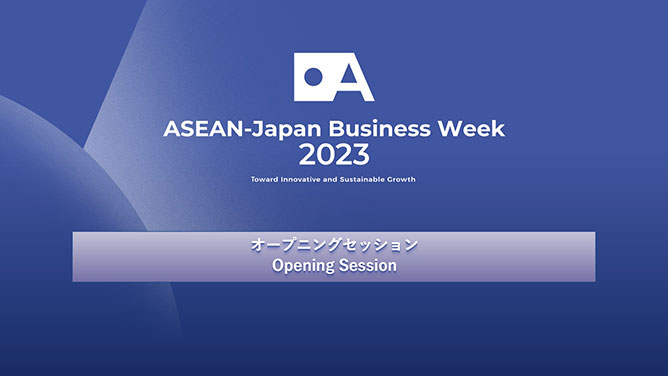

5 June[MON]
10:00 - 10:45
Opening Session
SPEAKERS

Minister of Economy, Trade and Industry
NISHIMURA Yasutoshi

Secretary-General of ASEAN
Kao Kim Hourn
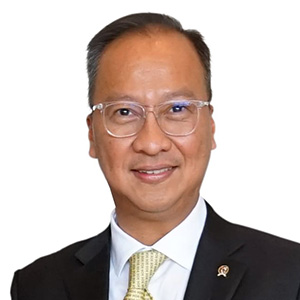
Minister of Industry
Indonesia
Dr. Agus Gumiwang Kartasasmita, M.Si.

Secretary of the Department of Trade and Industry
Philippines
Alfredo E. Pascual
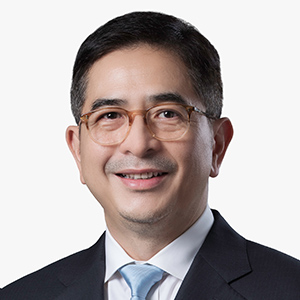
ASEAN-BAC
Chair
M. Arsjad Rasjid P.M.
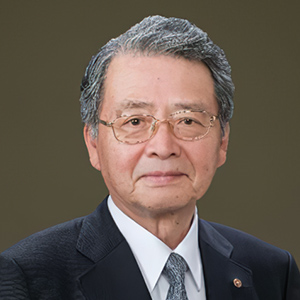
The Japan Chamber of Commerce and Industry
Chairman
KOBAYASHI Ken
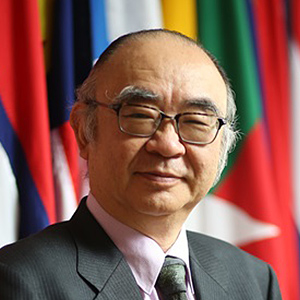
Economic Research Institute for ASEAN and East Asia
President
NISHIMURA Hidetoshi
Minister of Economy, Trade and IndustryNISHIMURA Yasutoshi
Minister Nishimura expressed gratitude during his opening remarks at the AJBW2023 for being able to hold the first face-to-face meeting in the year, marking the 50th anniversary of Japan-ASEAN friendship and cooperation. He highlighted ASEAN's growth and vitality, and emphasized the discussions between Japan and ASEAN regarding the direction of their economic relationship.
Furthermore, he announced the "Japan-ASEAN Economic Co-creation Vision," emphasizing the importance of leveraging the strengths of both Japan and ASEAN to co-create and build the future based on trust. He stated specific initiatives, such as realizing a carbon-neutral society, centralizing Japan-ASEAN for innovation creation, and prioritizing the establishment of people networks.
Minister Nishimura also stated to concrete efforts including the introduction of renewable energy and promotion of decarbonization projects, fostering innovation in the Japan-ASEAN context, and enhancing cooperation between industries. He then announces about the Japan-ASEAN Young Business Leaders Summit and the Z Generation Business Leaders Summit, indicating an intention to cooperate the younger generation.
Overall, he expressed the hope that the AJBW2023 would become an opportunity to advance co-creation between Japan and ASEAN.
Secretary-General of ASEANKao Kim Hourn
ASEAN Secretary-General Kao Kim Hourn highlighted the remarkable resilience of ASEAN and Japan in the aftermath of the pandemic. He particularly emphasized the positive progress towards recovery in Japan, with a projected growth rate for 2023. Furthermore, ASEAN and Japan are actively promoting trade, investment, and cross-sectoral cooperation, aiming to establish a comprehensive strategic partnership and enhance their relationship.
He urged businesses to contribute towards achieving carbon neutrality and demonstrated a commitment to prioritizing sustainability and environmental technology. Kao Kim Hourn also noted that digital technology serves as a driver of innovation and productivity. He emphasized the need to strengthen supply chains through partnerships and diversification, leveraging ASEAN's cost advantage and Japan's expertise.
He further stated that ASEAN and Japan are addressing challenges posed by trade agreements and regional comprehensive economic partnerships, focusing on responsive measures to seize opportunities. These actions, rooted in embracing future visions of digital transformation, sustainability, and supply chain reconfiguration, are proposed to shape a prosperous future for both ASEAN and Japan.
Minister of Industry IndonesiaDr. Agus Gumiwang Kartasasmita, M.Si.
Minister of Industry Indonesia, Dr. Agus Gumiwang Kartasasmita, M.Si. emphasized the importance of cooperation between ASEAN and Japan in the realm of economics, particularly focusing on digital economy, sustainability, and clean energy sectors. He also touched upon the responsibilities and goals of the ASEAN Chair and discussed the integration of energy and economy in Asia. Furthermore, he underscored the significance of the progressing bilateral economic partnership between Indonesia and Japan, and elaborated on the strengthening of future collaborative efforts. In conclusion, he expressed gratitude for the longstanding friendship between ASEAN and Japan built over 50 years, and pledged commitment to enhancing the cooperative relationship in the future.
Secretary of the Department of Trade and Industry PhilippinesAlfredo E. Pascual
Secretary of the Department of Trade and Industry Philippines, Alfredo E. Pascual highlighted the historical cooperative relationship between ASEAN and Japan, as well as their contributions to regional economic development. In particular, he emphasized the increased bilateral trade and investment activities between ASEAN and Japan over the past 50 years, the significant influence of their economic partnership on the entire Asian region, and the growing expectations regarding the activation of ASEAN-Japan economic relations in conjunction with the Philippines' involvement in regional comprehensive economic cooperation agreements. He mentioned that in the future, ASEAN and Japan could work towards enhancing their collaboration by building a foundation of trust, potentially leading to a mutually reinforcing developmental relationship.
He pointed out the complementary strengths of the ASEAN region's youthful and vibrant population and growing middle class evolving rapidly into an economic community, along with Japan's mature economy and technological prowess, particularly in the manufacturing sector. He proposed that these contrasting attributes could become essential elements for driving mutual growth, serving as a catalyst for not only economic prosperity at the national level but also for social development and strengthened relationships. He emphasized the potential for achieving equitable and sustainable prosperity and redistributing the benefits of co-created economic growth at an individual level within the context of this partnership. He underscored the importance of stakeholders, policymakers, businesses, leaders, academia, and the youth from both ASEAN and Japan participating in this new partnership and taking collective action towards a shared and thriving future.
ASEAN-BAC ChairM. Arsjad Rasjid P.M.
ASEAN-BAC Chair, M. Arsjad Rasjid looked back on the 50-year partnership history between ASEAN and Japan, particularly highlighting the establishment of the partnership agreement in the economic realm in 2008, which marked the beginning of a strengthened and renewed collaboration. He further commended Japan's significance as a crucial trade partner for ASEAN and underscored its pivotal role in the G7 Summit.
Additionally, he introduced policy recommendations and legacy programs prioritizing digital transformation, sustainable development, robust recovery, food security, and the promotion of trade and investment. He also emphasized support for small and medium enterprises, the implementation of the Wiki Entrepreneur initiative, and the importance of ASEAN QR codes and the Net Zero Hub.
Furthermore, he spotlighted Japan's role and cooperation, urging a focus on environmental concerns, nurturing business leaders, participation in events, support for the ASEAN-Japan Young Business Leader Program, and encouraging Japanese companies to engage in the ASEAN Outlook Summit.
The Japan Chamber of Commerce and Industry ChairmanKOBAYASHI Ken
The Japan Chamber of Commerce and Industry Chairman, Kobayashi mentioned that while the economic activity and international exchanges have recovered from the impact of the COVID-19 pandemic over the past three and a half years, they are now facing the influence of new geopolitical risks such as Russia's invasion of Ukraine and the U.S.-China tensions. In the Japanese economy, he noted that although measures taken to combat the COVID-19 situation have been relaxed, leading to expectations of increased personal consumption and capital investment, there is a need to address structural challenges such as population decline, aging society, labor shortages, and energy issues.
Nonetheless, the current situation should be viewed as an opportunity for transitioning towards growth while acknowledging these challenges. He emphasized the importance of the 50th anniversary of Japan-ASEAN friendship and cooperation, aiming to establish the Japan-ASEAN Economic Co-Creation Vision and realizing a socio-economic structure built on trust.
Economic Research Institute for ASEAN and East Asia PresidentNISHIMURA Hidetoshi
Secretary-General Nishimura expressed gratitude for the event celebrating 50 years of friendship and cooperation between ASEAN and Japan. He noted that this relationship began with the Synthetic Rubber Forum in 1973, followed by subsequent capital inflows that facilitated the expansion of Japanese businesses and product exports in ASEAN, thereby contributing to the refinement of regional industries and economic growth.
Furthermore, he emphasized the heightened focus on digitalization and sustainability spurred by the pandemic and highlighted the comprehensive approach advocated by ERIA in CADP 3.0. The adoption of emerging digital technologies is key to growth; however, the gap in digital skills presents a challenge. Taking this situation into account, ERIA established the "Digital Innovation and Sustainable Economy Center" in 2023, with significant support from the Japanese government. This initiative aims to foster collaboration between Japan and ASEAN by harnessing the innovative capabilities of young leaders, with a particular focus on over 30 rapidly growing unicorn companies and startups. The establishment of this center is seen as a crucial first step towards economic co-creation between ASEAN and Japan.
